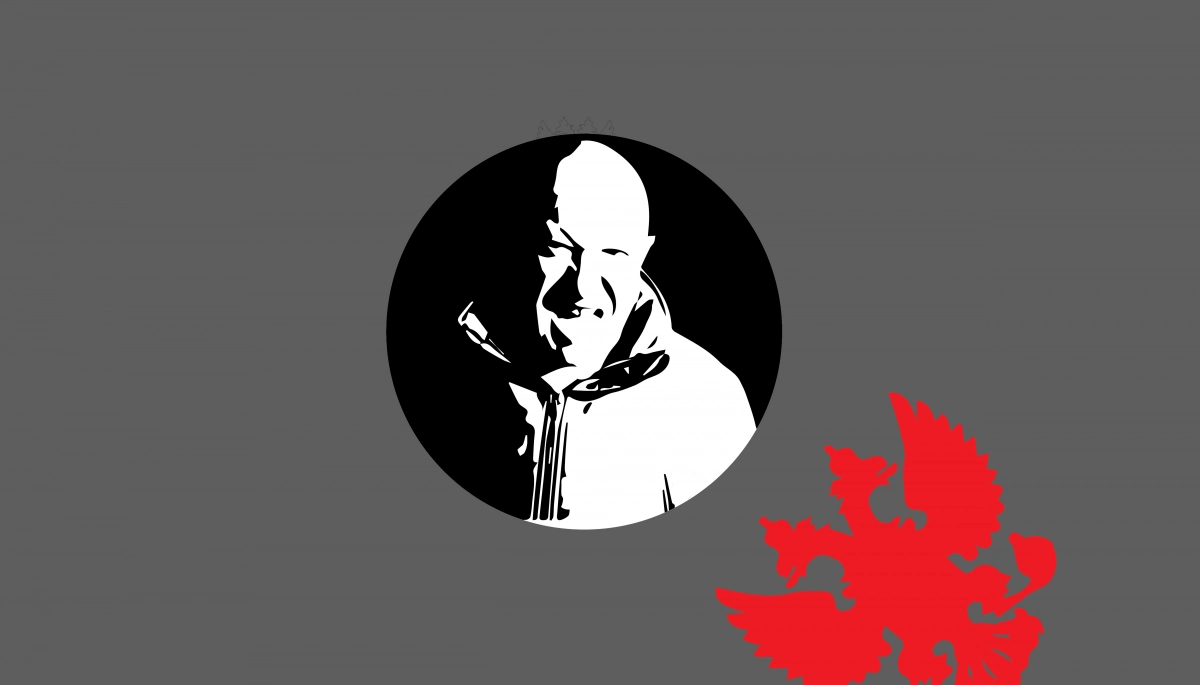Українською читайте тут.
On the night of June 23, Yevgeny Prigozhin, the founder of the Russian military's Wagner terrorist group — deemed an international criminal organization by the Ukrainian parliament — blamed the Russian Ministry of Defense for attacking his group's base camps. Simultaneously, he vowed that his Wagnerites would scrutinize the reasons behind the country's turmoil. Prigozhin stated that mercenaries under his command would organize a "March of Justice," blocking Rostov-on-Don and advancing to Moscow, should they fail to meet the Russian Minister of Defense and the Chief of the General Staff of the Russian Army.
The Wagnerites soon commenced delivering on their threats, seizing control of military installations in Rostov-on-Don and Voronezh, and bringing down seven Russian aircraft. President Putin dubbed this act a "mutiny" and a "stab in the back." The occupation of the military bases in Rostov-on-Don and Voronezh essentially paved the way to Moscow. Yet, on June 24, Prigozhin abruptly declared a halt to their advance and the return of his troops to their camps.
The Wagnerites first emerged in the media in 2014, when they began aiding Russian forces in eastern Ukraine and contributing to Russia's annexation of Crimea. They also made their presence felt in Africa and the Middle East. The Russian Defense Ministry initially refused to acknowledge the Wagnerites were fighting against Ukraine in a full-scale war, leading to a rift between Prigozhin and the Russian military leadership. Notably, the mercenaries were involved in the battles for Bakhmut, continuously airing complaints about insufficient ammunition and negligence of their needs. This set the stage for escalating tensions between Prigozhin and the Ministry of Defense, eventually culminating in an armed rebellion.
This rebellion drew the spotlight of international media and analysts. Although the uprising subsided within 24 hours, it left behind a myriad of questions regarding the instigators, reasons for the Wagnerites' halted advance to Moscow, implications for Russia and Ukraine, and more. This article collates key narratives disseminated by the Russian propaganda machine within Russian and pro-Russian Telegram channels and propaganda outlets:
1. "Prigozhin's rebellion was orchestrated by foreign intelligence agencies"
On the Russian federal NTV channel, propagandist Irada Zeynalova called the events of recent days "a case of foreign special services that worked," adding that "they will try to rock the country, Putin has been talking about this for the past weeks."
Accusing foreign intelligence services of staging events is a typical propaganda practice. In fact, it is very convenient to shift all responsibility to a collective force that, according to Russian propaganda, has been trying to "sink" Russia for many years. Moreover, this external force cannot be brought to justice because it is a collective entity whose guilt is difficult to "prove." By accusing foreign intelligence services, propagandists are trying to spread a message that portrays Russia as a victim of conspiracy and unwarranted external interference. They claim that Russians are so conscious and united that they are incapable of any kind of rebellion; such things happen only at the behest of external hostile forces.
2. "The march on Moscow stopped because the rebels ran out of gasoline"
Russian propagandist Kiselyov said that the heavily armed Wagnerites with heavy equipment did not reach Moscow, allegedly because the military convoy ran out of gasoline. However, in his opinion, there was no chance of a revolution anyway because it was "not supported by society" and "the stronghold of unity remained unshakable."
Here we can see how Russian propaganda oversimplifies the reasons. Simple explanations are used to avoid going into details and raising unnecessary doubts in the audience.
3. "Speaking out against Putin is anti-patriotic"
Here's how one propagandist explained Prigozhin's rebellion: "When the rebellion broke out, the linearly thinking part of Russian patriots found themselves suffering from the effects of cognitive dissonance. Like the rest of the country, they trust Putin. In Russia, anyone who opposes Putin automatically ceases to be a patriot because today Putin is the main force for consolidating Russia."
Propagandists appeal to the values and identity of the nation, although they mean something different than patriotism. This is a typical practice of employing equivocation to manipulate public perception and shape desired narratives. Russian propaganda equates loyalty to an authoritarian regime with patriotism. It claims that those who oppose the Russian government are not patriots because all true patriots support Putin.
4. "Wagner can now invade Ukraine from Belarus"
After Prigozhin ended his rebellion, the Kremlin said that he would settle in Belarus; the mercenaries of his organization could sign contracts with the Russian Ministry of Defense, return home, or go to Belarus. "Wagner may open the northern front during Zero Hour with a breakthrough to Zhytomyr/Rivne, which will cause huge problems for the Ukrainian Armed Forces," was the “insight” spread by one of the anonymous Telegram channels.
This is a typical intimidation tactic by which propagandists use fear or strong prejudices to achieve the desired result. They seek to impose a sense of vulnerability, helplessness, doom, and hopelessness — as if the Wagnerites will get you everywhere, have been advancing from the east, and are now coming from the north. However, this "insight" was not supported by any convincing evidence or arguments. For example, if the ultimate goal of all this was to open the northern front by using the Wagnerites, why couldn't it have been done directly without destroying Russian military equipment?
5. Putin orchestrated everything to get rid of Shoigu
"It is wrong to call Prigozhin's March of Justice a rebellion, it was actually planned by Putin. With the help of heavy military equipment (tanks, Grad MLRS, and air defense systems), Prigozhin went to help Putin to get rid of a number of officials, including Shoigu, all the generals of the Defense Ministry and the General Staff, as well as a lot of high-ranking employees of the presidential administration and various security agencies," contended one of the Telegram channels spreading pro-Kremlin rhetoric.
Such notions are an attempt to consolidate Putin's image as an omnipotent leader who always keeps everything under control and does not make mistakes. Allegedly, Putin is always one step ahead of his opponents, and everything that happens — even the most outlandish and absurd scenario — was actually the Russian dictator's idea.
6. Prigozhin's rebellion strengthened Putin's power
"Prigozhin's rebellion and its failure did not weaken Putin's power and Russia's internal stability but rather strengthened it. Prigozhin and Wagner created a "state within a state," with its own army and media. But Prigozhin was sent into exile, and Wagner actually ceased to exist," said one of the anonymous Telegram channels promoting pro-Kremlin rhetoric. The other day, propaganda media also published a statement by the director of the Institute for Political Studies, Sergei Markov, that ordinary Russians "are ready to pray to Vladimir Vladimirovich [Putin]: just save us from all this chaos. The president's support was 80%, and after these events, it became 90% because people saw Prigozhin not as a politician with an agenda but as a horseman of the apocalypse."
On the one hand, the propaganda describes the events as a treacherous stab in the back and a threat to the existence of the state, but on the other hand, it assures that this situation does not weaken Putin's position so much as strengthen it and helps to consolidate his apparatus. This is a classic example of "doublethink" — the ability to hold two contradictory beliefs or accept two contradictory ideas at the same time. Although doublethink is not a propaganda tactic per se, it can be used as a method of psychological manipulation in propaganda campaigns. However, only a few days after the coup, Russian opinion factories already have the results of opinion polls on these events and attitudes toward Putin against the backdrop of his policy toward Prigozhin.
Media effects of Prigozhin's revolt
First, at the beginning of the events, the key propaganda mouthpieces were mysteriously silent because they did not know the “correct” way to react. But Prigozhin's rebellion was immediately reported by all the world's media, so it would not have been possible to simply bury the story. Soviet television used to broadcast Swan Lake on the days of the deaths of the secretary generals. During the 1991 putsch, Pyotr Tchaikovsky's ballet was shown for three days with short breaks for news from the State Emergency Committee. This approach would not be effective during a rebellion.
Secondly, Prigozhin's rebellion clearly proved that Russia's state apparatus is not based on specific institutions but on an informal network of connections headed by Putin himself. When Putin's position is strong, this system works, but when Putin is weakened, the situation gets out of control. The system fails, its individual links are disoriented and work in isolation, and other political players lack the strength to influence the situation on a systemic level. This once again demonstrates that Russian society perceives Putin as the person responsible for all the processes taking place in the country, and nothing happens without his knowledge or personal intervention. The propaganda media covered the events in a way that only emphasized the strength of this limited worldview.
Thirdly, Prigozhin's rebellion and its media support indicate that the Russian leadership was actually forced to switch to a "crisis communication" mode. Instead of "triumphing" and talking about "successes and victories," it had to launch an often uncoordinated campaign of justification, reassurance, and defiance, demonstrating that the Putin regime had "everything under control" and that everything was "going according to plan."



